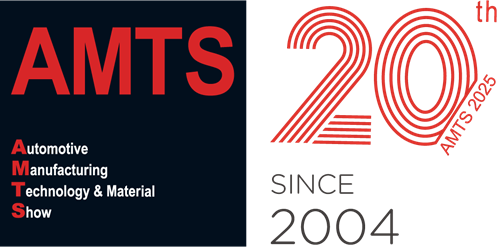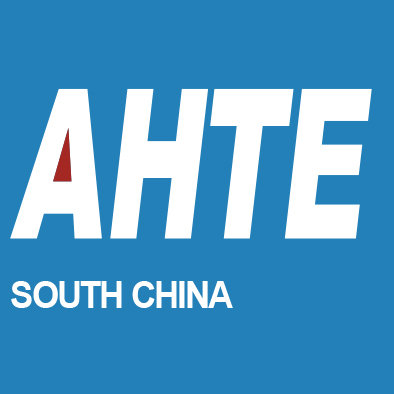On April 2, the US government issued an executive order to impose a 25% tariff on imported cars and certain auto parts. Let's see how global automakers are adopting different strategies to cope with rising costs and changing market demands under the tariff challenge. The German automaker Audi has decided to suspend deliveries of new cars to US dealers. Audi announced on April 7 that all imported vehicles arriving at US ports after April 2 (mainly from Mexico and Europe) will be detained and not delivered to dealers for the time being to avoid new tariff costs. Inventory vehicles before April 2 are marked "no additional import fees" and can be sold normally. An Audi spokesman also emphasized that Audi currently has about 37,000 inventory cars in the US that are not affected by the new tariffs, which can meet about two months of market demand. The company suggests that dealers prioritize the digestion of existing inventory. Mercedes-Benz will temporarily bear the tariff costs for 2025 models or increase the production of new models at its US factories. Mercedes-Benz said it will not raise the list prices of 2025 models for the time being. Mercedes spokesman Michael Minielly said, "We will continue to closely monitor the situation, are evaluating all options, and will make adjustments as necessary based on changing market conditions and the competitive landscape." In addition, the Mercedes-Benz Group is considering transferring the production of another model to the United States. Jaguar Land Rover, a British automaker, announced that it will suspend the export of complete vehicles to the US for one month starting from April 7. Jaguar Land Rover said in a statement that suspending the export of complete vehicles to the US is one of the short-term measures to cope with the "new trade conditions." The statement said that the US is an important market for its luxury brands. Jaguar Land Rover exports nearly 100,000 vehicles to the US every year, accounting for about a quarter of its global total sales. Before the tariff measures took effect, Jaguar Land Rover had stocked up two months' worth of inventory in the US. The company is considering measures such as raising prices in the US, reducing costs, and shifting to other markets to deal with the impact of tariffs. Ferrari has increased the prices of some models in the US market by up to 10%. As the first European automaker to respond to Trump's auto tariff measures, Ferrari's largest single market is the US. Ferrari produced a total of 13,752 cars last year, of which 3,452 were shipped to the US. All models are manufactured in Maranello, northern Italy. According to Ferrari's latest policy, the prices of all models exported to the US before April 2 remain unchanged. After that, the prices of the three major car series, the Ferrari 296, SF90, and Roma, still remain the same, but the prices of more popular models, including the Purosangue SUV, 12Cilindri, and F80, will be increased by up to 10%. Volkswagen plans to add import fees to the list prices of cars shipped to the US. In addition to adding import fees, Volkswagen has also taken temporary measures to suspend the rail transportation of vehicles from Mexico and to keep vehicles shipped from Europe at ports. The specific models affected include the ID.Buzz van and Golf hatchback imported from Europe, as well as the Tiguan, TAOS SUV, and Jetta compact car imported from Mexico. The electric ID.4 and large Atlas SUV produced at the company's Tennessee factory in the US are theoretically not affected by this tariff. Hyundai Motor Group will build a complete industrial cluster in the US and plans to increase the proportion of local production of key electric vehicle components. Nearly two-thirds of the light vehicles sold by Hyundai in the US are imported, and most of them are from South Korea, which cannot enjoy the USMCA exemption rules. These vehicles will face an import tariff of up to 27.5%. Hyundai plans to invest $9 billion to build a vehicle production base in the US with an annual capacity of 1.2 million vehicles and also plans to invest $6 billion to increase the proportion of local production of key electric vehicle components. Nissan is considering transferring some of its production to the US. It is reported that as early as this summer, Nissan plans to reduce the production volume at its Fukuoka plant in western Japan and transfer part of the production of its Rogue SUV to the US to reduce the impact of tariffs. The Rogue SUV is a key model sold by Nissan in the US market and is currently produced in Fukuoka and the US. In addition, Nissan will no longer accept new orders for Mexican-produced Infiniti SUVs in the US. Volvo has promised to produce more cars in the US and has increased its investment in a Mexican factory to $1 billion. With the implementation of Trump's tariff policy, Hakan Samuelsson, the new CEO of Volvo Cars, said that the company will produce more cars in the US, increase regionalization efforts, and may produce an additional model in the US. In addition, Volvo will invest an additional $700 million to expand its heavy-duty truck factory in Monterrey, which is expected to start production in 2026. Ford has officially launched a significant discount on its entire vehicle lineup. Ford Motor Company announced the launch of an employee preferential car purchase program called "From America, For America." The program aims to attract consumers to buy Ford cars by offering discounts close to or even lower than the dealer invoice price. Ford has an advantage in coping with the impact of the tariff policy due to its high proportion of local production in the US. General Motors will increase the production of pick-up trucks at its Indiana factory. General Motors said that its Fort Wayne, Indiana plant plans to increase the production of light-duty trucks. GM CEO Mary Barra hinted at this earlier this year. She said at the time, "We have truck production plants in Mexico, Canada, and the United States. Therefore, we have the ability to transfer some of the production capacity." As a grand event in the automotive technology and engineering industry, AMTS will focus on every aspect of automotive research, development, and manufacturing. It will showcase new products, new technologies, and new processes. At the same time, it will also pay attention to cutting-edge automotive technologies, promoting innovation and collaborative development in the automotive industry. It will build a one-stop communication platform for system integrators in the automotive engineering field, Tier 1 and Tier 2 suppliers, as well as engineering personnel engaged in the research, development, and manufacturing of complete vehicles and auto parts. See you in Shanghai from July 9th to 11th, 2025! |








